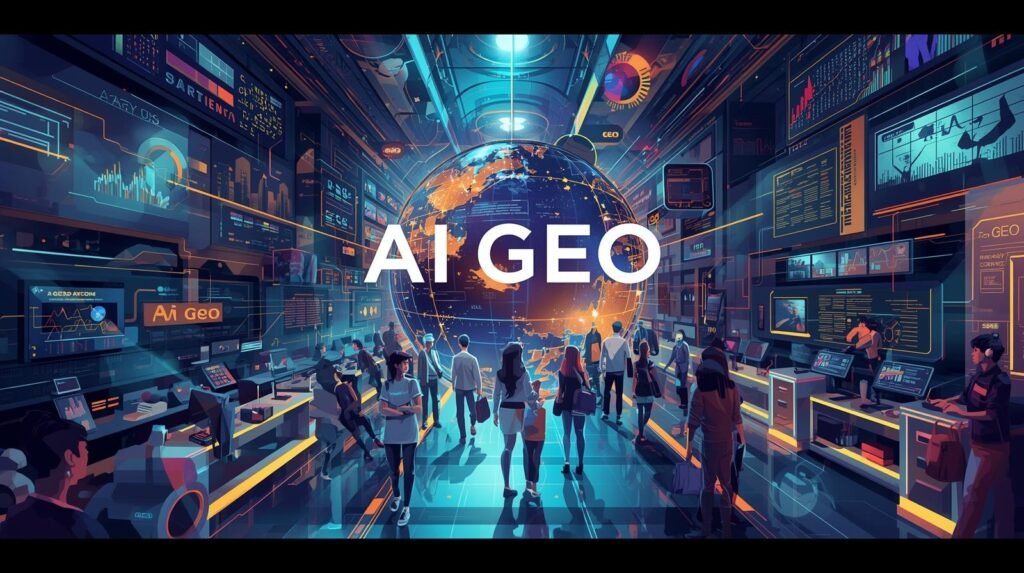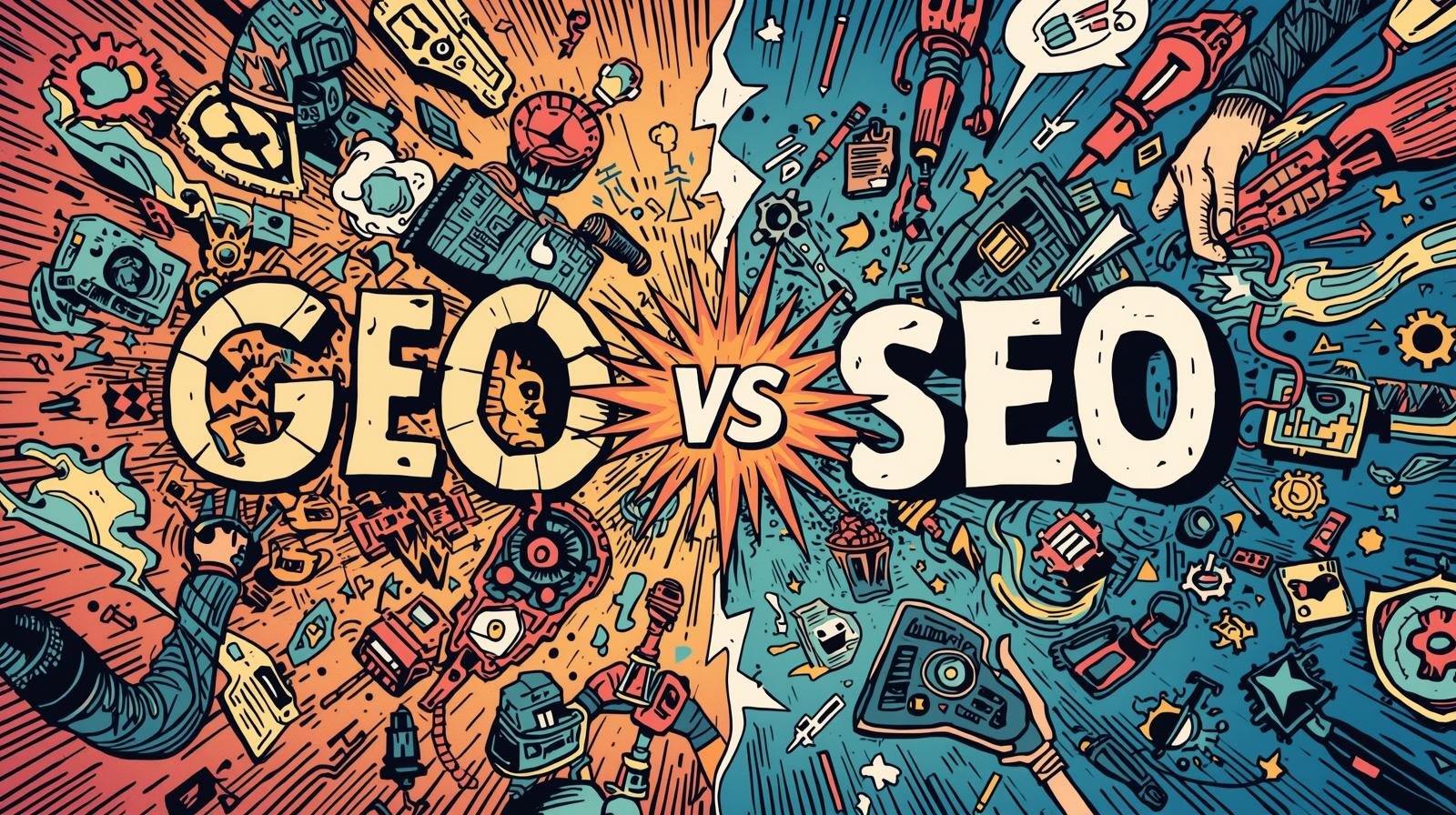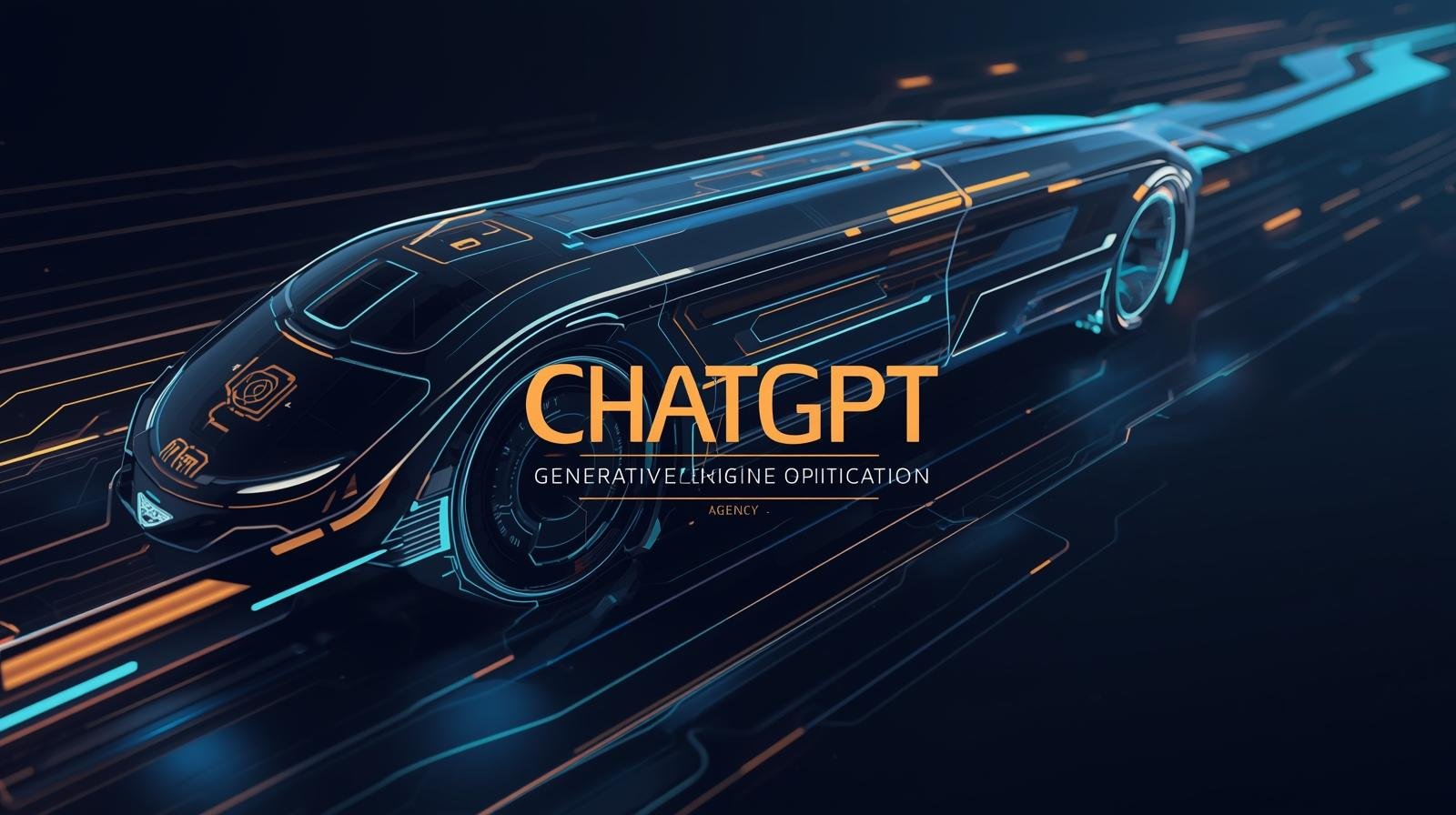G
enerative Engine Optimisation (GEO) is the next evolution of search optimisation,
focusing on how businesses and brands can appear in answers generated by AI-driven tools like ChatGPT, Google Gemini, and other generative platforms.
Unlike traditional SEO, which optimises for web pages on search engines, GEO optimises content for conversational responses provided by AI models.
This means structuring data, creating contextually rich content, and ensuring information aligns with AI learning mechanisms.
The introduction explores why GEO matters in 2025 and beyond, as consumer behaviour shifts from typing search queries into Google to asking direct questions
to AI assistants on phones, laptops, and even cars. GEO will be fundamental in helping businesses future-proof their visibility.
- Understanding Generative Engines
- The Core Principles of GEO
- Services Offered by a Generative Engine Optimisation Agency
- Tools and Technologies Used in GEO
- GEO vs SEO
- Benefits of Hiring a GEO Agency
- GEO Content Strategy
- GEO for Businesses
- Case Studies and Examples
- Challenges in GEO
- The Future of GEO Agencies
- How to Choose the Right GEO Agency
- DIY GEO Strategies
- Conclusion

Understanding Generative Engines
Generative engines are AI systems trained on large datasets to produce human-like responses.
Unlike search engines, which index and retrieve results from web pages, generative engines synthesise new content in real-time.
For example, ChatGPT generates answers by predicting text based on patterns it has learned, while Google’s Gemini integrates multimodal capabilities to combine text, video, and images.
Understanding these engines helps businesses recognise how their content can be surfaced in conversational results.
The difference between retrieval-based engines and generative AI, along with the growing importance of contextual and semantic cues in optimisation.
The Core Principles of GEO
At its foundation, GEO revolves around five principles: relevance, authority, structured data, semantic optimisation, and natural conversation.
Relevance ensures the AI understands the context of a query and links it to the right content. Authority comes from credibility signals like brand mentions, citations, and factual accuracy.
Structured data, such as schema markup and knowledge graphs, improves AI comprehension. Semantic optimisation ensures that content aligns with related concepts, not just keywords.
Finally, natural conversation means writing in ways that mirror how people ask questions. Together, these principles guide businesses to appear in AI-driven answers consistently.
Services Offered by a Generative Engine Optimisation Agency
A GEO agency, Digital Robin provides tailored services for businesses to succeed in AI-driven visibility.
Services include creating content strategies optimised for AI queries, prompt engineering to guide better AI answers, entity and knowledge graph building, and voice search optimisation.
They also conduct AI keyword research, optimise FAQs for AI tools, and ensure long-form blogs are context-rich.
Some agencies even provide training for in-house teams to adapt to GEO trends.
Tools and Technologies Used in GEO
Just like SEO relies on Google Analytics and SEMrush, GEO depends on AI-focused tools.
Knowledge graph platforms help businesses define entities for AI, while semantic tools analyse how words relate in context.
AI-powered content creation tools like Jasper or Copy.ai assist in scaling conversational writing.
Analytics dashboards now measure not just clicks but mentions in AI answers.
Emerging tools like Perplexity dashboards, AI brand visibility trackers, and entity-based optimisation frameworks.
Businesses that adopt these technologies early gain a competitive edge in AI-driven visibility.

GEO vs SEO
Though similar in concept, GEO and SEO have distinct approaches. SEO targets Google rankings, meta descriptions, backlinks, and technical optimisation.
GEO, on the other hand, focuses on making content easily retrievable and contextually relevant for AI engines.
The major difference lies in content intent: while SEO targets “ranking,” GEO targets “answer generation.”
A hybrid approach often works best, blending traditional keyword optimisation with AI-first strategies.
The future will see convergence, where businesses need both SEO for traditional search and GEO for AI visibility to thrive in the evolving digital ecosystem.
Benefits of Hiring a GEO Agency
Hiring a GEO agency, Digital Robin ensures businesses stay competitive in the AI-first world.
Benefits include improved brand visibility across AI engines, increased engagement as content is more conversational, and authority-building within AI responses.
Agencies also help businesses future-proof against algorithm shifts, as AI models constantly update.
Long-term, GEO delivers higher ROI by ensuring customers find reliable answers tied to your brand, not just website listings.
GEO Content Strategy
A robust GEO content strategy focuses on conversational design.
This means writing FAQ-style content, answering questions directly, and embedding semantic depth into blogs.
Content should be long-form yet context-rich, providing layered insights AI can pick up.
Agencies often recommend using “How, What, Why” style structures since AI queries often mimic natural questions.
Case studies show that companies shifting from keyword-stuffed articles to natural Q&A formats saw higher mentions in AI answers.
GEO for Businesses
GEO adapts differently depending on the type of business.
Small businesses use it to increase local mentions in AI tools, like being recommended by ChatGPT for “best plumber in Manchester.”
Enterprises leverage GEO for global brand authority, while e-commerce platforms optimise product descriptions for AI shopping assistants.
Local businesses can optimise “near me” style queries for AI tools.
Niche industries such as healthcare, finance, and insurance can improve trust by providing accurate, authoritative responses.

Case Studies and Examples
Case studies show GEO in action.
For instance, a healthcare clinic implemented AI-friendly FAQs and became frequently cited by AI tools answering medical queries.
A travel agency optimised local itineraries and saw their content embedded into AI-generated travel guides.
Finance companies focusing on trustworthy, well-cited content gained authority in AI-driven personal finance responses.
Each case study demonstrates measurable results like increased brand mentions, customer engagement, and lead generation.
Challenges in GEO
Despite its potential, GEO faces challenges. Many businesses lack awareness of generative optimisation.
AI model updates happen frequently, meaning strategies need constant monitoring and adaptation.
Another issue is content saturation, where multiple businesses compete for AI visibility.
Measuring success remains difficult, as there are no universal metrics for AI-driven mentions yet.
Finally, ethical concerns arise: how much influence should businesses have over AI responses?
The Future of GEO Agencies
The future of GEO agencies lies in AI-first marketing.
As AI tools integrate with everyday devices, businesses will depend on agencies to maintain their visibility.
We may see GEO integrated into the metaverse, AR/VR shopping, and virtual assistants like Alexa or Siri.
Agencies will expand services to cover brand presence in multimodal AI—covering text, audio, and visuals.
Over the next decade, GEO will likely replace SEO as the dominant optimisation strategy.

How to Choose the Right GEO Agency
Selecting a GEO agency requires evaluating their expertise in both SEO and AI.
Businesses should look for proven case studies, transparency in methodology, and adoption of advanced tools.
Cost is important but should be balanced against long-term value.
Agencies that offer custom strategies, industry-specific expertise, and hands-on collaboration tend to provide better results.
DIY GEO Strategies
For businesses unable to hire agencies, DIY GEO is possible.
Start by writing content in a conversational tone and optimising FAQs for AI.
Free semantic tools and entity recognition platforms can improve content visibility.
Monitoring AI mentions of your brand using dashboards like Perplexity or custom trackers helps measure progress.
Learning prompt engineering also helps craft better AI-ready content.
Conclusion
Generative Engine Optimisation represents a paradigm shift in how businesses approach digital visibility.
It is no longer enough to rank on Google—brands must now be “answerable” in AI-driven platforms.
The businesses that adapt early will build authority, trust, and long-term engagement.
GEO agencies provide the expertise and resources to navigate this shift, while DIY strategies offer an entry point for smaller players.
The conclusion reinforces GEO as a competitive advantage and essential marketing strategy for the future.
FAQ
Most frequent questions and answers
A specialist agency like Digital Robin, that optimises brand visibility in AI-driven search engines.
SEO targets Google search results; GEO targets AI answers and summaries.
Yes — especially for local visibility in AI recommendations.
E-commerce, healthcare, SaaS, education, and hospitality.
It can be, but ROI is often higher since visibility is future-proofed.
Not immediately — but GEO is rapidly becoming essential alongside SEO.
Also, read: –
- Digital Marketing Agency: Expectations vs. Reality
- What are SEO Services and Why Do they Matter?
- Everything You Need to Know About Zoho Partner
- Why We Love Google Ads service (And You Should, Too!)
- The Next Big Thing in Digital Marketing Services
- Getting the most out of your Web Design Company UK
- Why Nobody Cares About Domain Name Search
- Meet the Steve Jobs of the Web Design Company


